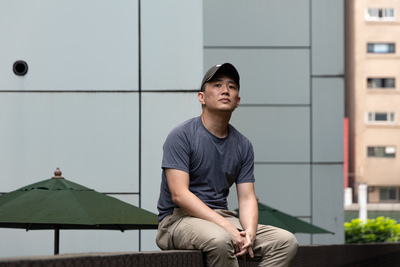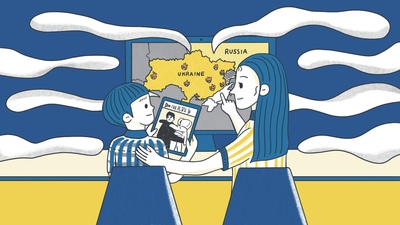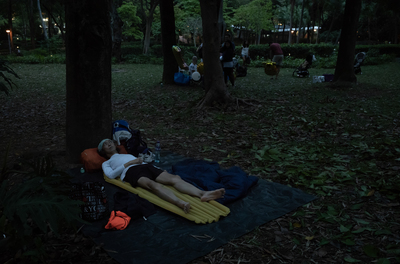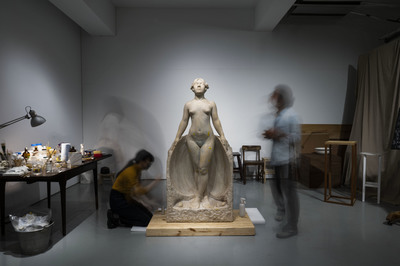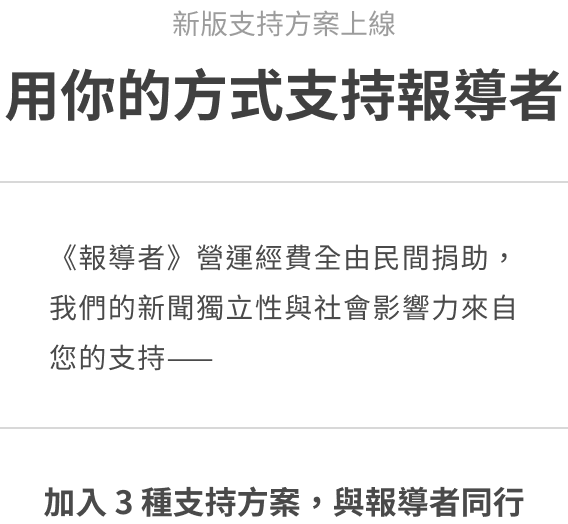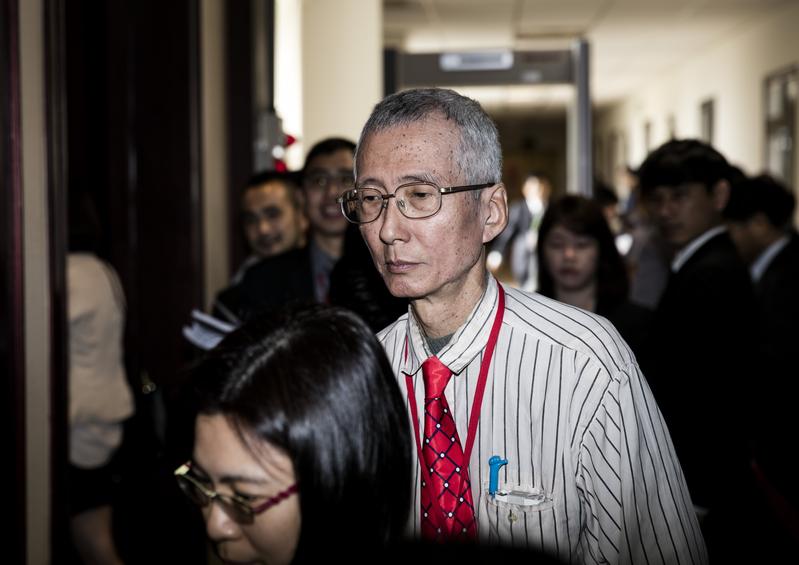
Taiwan’s most prominent LGBT activist makes an impassioned plea for marriage equality in Taiwan’s highest court.
"I've been waiting for this day for 41 years, six months, and 24 days,” says Chi Chia-wei (祁家威).
Now 59 years old, Chi has realized a dream he’s had since he was 17: he’s about to argue for marriage equality for same-sex couples in Taiwan’s constitutional court.
"Modern medicine deemed homosexuals as normal, and that we are good people. Marriage is a normal thing, and it’s also a good thing. So why are good people forbidden from doing good things?” said Chi during his statement.
As the first gay man to come out publicly in Taiwan, Chi's marriage registration request has been rejected twice, and he subsequently filed petitions for constitutional interpretations. The Constitutional Court did not take his first petition. 15 years later, the courts have decided to hear Chi's second petition.
The court also heard a 2015 petition by the Taipei city government, requesting the court to rule on the constitutionality of the ban that denies same-sex couples the right to register for a marriage license.
In the final months of 2016, Taiwan’s parliament —the Legislative Yuan—started reviewing a number of bills that recognize same-sex marriage. This triggered massive mobilization from both supporters and opponents of marriage equality, with hundreds of thousands of people taking to the streets. The Legislative Yuan managed the issue with upmost prudence. The Committee for Judiciary and Organic Laws and Statues completed a review, and brought the bill forward for party negotiation. Many supporters expected the courts to provide a strong mandate for the ruling.
In February 2017, the courts informed the press that it will take up the petition, and rule on the constitutionality of chapter four of the civil code that "rejects same-sex couples to enter legal marriage."
On March 24th, at 9am, the court commenced oral arguments, and broadcasted the entire debate live online.
The courts announced that the following four legal issues are to be discussed in the oral argument:
- Do the current laws, that is, regulations on marriage in civil codes, allow same-sex couples to get married?
- If not, do they violate Article 22 of the Constitution, which protects freedom of marriage?
- Also, do the current laws violate Article 7 of the Constitution, which guarantees the principle of equality?
- Will it be constitutional, under Article 7 (equality) and Article 22 (marriage freedom), to provide alternative legal protections, such as same-sex partnerships?
In other words, the Court intends to clarify if the current civil code allows same-sex couples to get married.
If the current laws forbids same-sex couples to get married, the next logical question is whether such a ban violates two constitutional articles, Article 22, which reads, "All other freedoms and rights of the people that are not detrimental to social order or public welfare shall be guaranteed under the constitution," and Article 7, which reads, "All citizens of the Republic of China, irrespective of sex, religion, race, class, or party affiliation, shall be equal before the law." Finally, the Court would consider the possibility to protect marriage freedom via alternative institutions, such as same-sex partnerships.
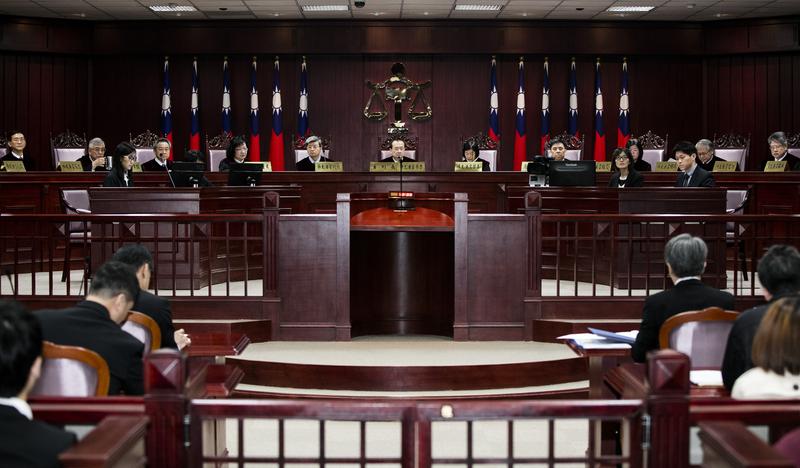
Many might wonder, isn't the current legal ban the reason why supporters strive for marriage equality now? In fact, the civil code does not really specify that parties who enter a marriage need to be "one man and one woman." But a letterin 1994, issued by the Ministry of Justice (MOJ), did interpret that "the current civil code defines marriage as a union between a man and woman, which excludes two persons of the same sex."
This letter was drafted in a discussion between the MOJ and the Ministry of Internal Affairs (MOI), after Chi requested to register for a marriage license. It thereafter officially banned the registration practice in Taiwan.
Chi's attorney, Victoria Hsu (許秀雯), argued that there are two ways of interpreting the current civil code. First, if the Court rules that the civil code does not forbid same-sex marriage, the letter by the MOJ in 1994 should be deemed unconstitutional. Second, if the Court rules that the civil code does forbid same-sex marriage, following the method of the textual and historical interpretation, then the code is to be declared unconstitutional because it goes against the principle of equality and the freedom of marriage, guaranteed in the constitution.
Similarly, Professor Liao Yuan-hao (廖元豪), who represents the Taipei City Government, argues that the current civil code does not include same-sex marriage, hence violates article 7 and 22.
The two petitioners share views on the first three legal issues that the Court wanted to clarify. However, the MOJ, the agency in charge of revising civil codes, takes a very different legal stance.
Justice Minister Chiu Tai-san (邱太三) believes that there is very limited legal ground that can be inferred from the current civil code to allow same-sex marriage. Chiu also argues that freedom of marriage is not a listed fundamental right with textual support from article 7 to 21 in the constitution, therefore, the civil code does not violate article 22 of the constitution.
He also argues that limiting "marriage" to the union between one man and one woman falls within the discretion of the legislative branch, as it is the legislators' prerogative to determine "reasonable differentiated treatment" in accordance with social facts. Hence, the ban on the civil code does not violate Article 7, which protects equality for all.
Legislative prerogative or “freedom of legislation” means that under the separation of powers, the judiciary should respect the opinions of the Legislative Yuan and give a portion of responsibilities to legislators.
In order for freedom of legislation to continue, Chiu disputes the fourth argument brought up during oral arguments, that is: “Is it constitutional to provide alternative legal protection for same-sex partnerships?”
Chiu believes that as long as marriage and other public interests remain unharmed, laws that grant protection to other arrangements (such as the ones suggested in the marriage equality law) is a process that falls under the Legislative Yuan’s prerogative. These laws do not betray the principle of equality and are in accordance with the guarantee of basic rights as outlined in article 22 of the Constitution. This means that the marriage equality arrangement is not against the Constitution.
But there are differences of opinion. Liao Yuan-hao believes that the fourth argument is made for a non-existent law, and the Taipei city government cannot answer this kind of hypothetical question.
Victoria Hsu, on the other hand, thinks that “a method that does not allow same-sex marriage but also does not oppose the constitution” simply does not make sense. Therefore, in order to solve the problem of Taiwan’s LGBT community being deprived of their rights to marry, the only way forward is to fight back for that freedom.
Compared to the strong opinions of the MOJ, the opinion of the MOI is rather mild.
The MOI is of the opinion that only they are in charge of household registration laws, which entails the management of marriage and household registration processes. The MOI respects the opinions of the MOJ on issues concerning the actual content of marriage.
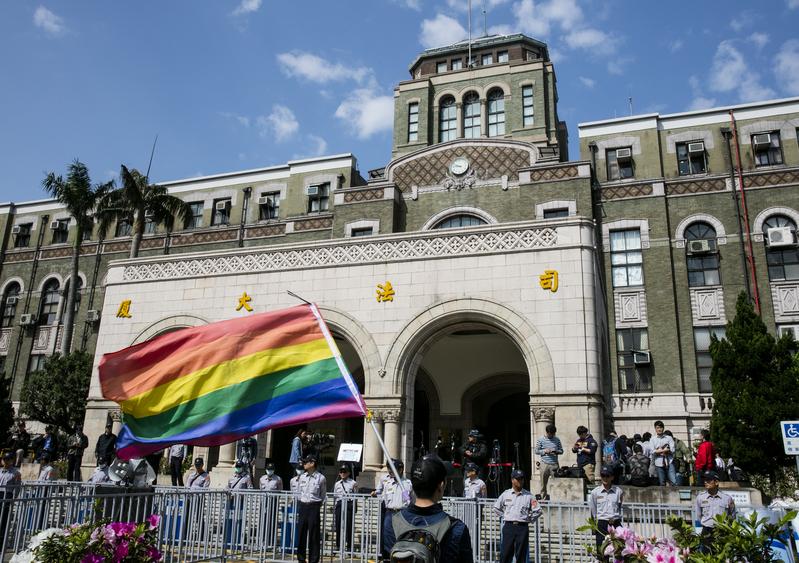
Chi, Hsu, Liao et al. were obviously dissatisfied with Chiu’s argument. They battled against his viewpoint tirelessly during the cross-examination period.
Liao questioned Chiu’s assertion that spousal arrangements should be made with the intent of ‘not harming the institution of marriage and the interests of the public.’
“Then how would amendments to the civil code to legalize same-sex marriage affect public interests? What are the downsides?” said Liao.
Chiu replied that it would not only affect the civil code, but also the penal code. The amendments would have an influence on how bigamy is treated, affecting article 239 of the penal code (an article relating to adultery). Chiu adds that it would impact the very institution of family and marriage.
He says there will be a “second influence on the family unit”. He mentions a personal anecdote where an elderly person asked him a question about same-sex marriage during the Lunar New Year celebrations.
“How would they write down the name of the parents on a family’s ancestral tablet?” said Chiu. “Would they write the names of the two deceased fathers? Or the names of the two deceased mothers? The whole family would have an argument on this.”
Furthermore, after receiving an obituary over the past few days, he wondered how future obits would be written?
“Would they have to write ‘son-in-law’ for a man’s partner, or ‘daughter-in-law’ for a woman’s partner?” Chiu says that the changes to these titles will have an impact on life and society.
Hsu wasn’t satisfied with how Chiu used “freedom of legislation” to argue for an amendment to the laws. During cross-examination, she questioned Chiu on the limits of freedom of legislation. If specific marriage laws were created for infertile couples, would there still be freedom of legislation? Chiu replied that fertility is not a condition of marriage as outlined in the civil code and did not directly respond to the question of whether there is a limit to freedom of legislation.
Critics are also divided on whether the existing civil code provisions are unconstitutional and whether the marriage equality law is constitutional.
Some believe that certain regulations in the civil code are already violating the Constitution and that the limits of freedom of legislation is basic rights of citizens. If the adoption of marriage equality laws still cannot protect citizens, then the civil code should be amended.
Other critics maintain that the related regulations in the civil code currently in force do not violate the constitution and that protection of LGBT peoples can be strengthened through the protection of extra-marital laws.
Chen Ai-Er (陳愛娥), professor of law at National Taiwan University, compares and contrasts discussions in the US and Germany on the issue of same-sex marriage. She points out that the US Supreme Court recognizes marriage equality and the protection of human rights, while in Germany marriage is seen as a regulation. The question of whether the constitution has been violated needs to be investigated based on the core of marriage regulations, which is based on heterosexual marriage. Chen believes that Germany’s system grants protection to same-sex couples and their model can be an option for Taiwan.
Meanwhile, Lee Hwai-Tzong (李惠宗), professor of law at National Chung Hsing University, argues that the law is aimed at handling common situations and phenomena. Since heterosexual marriages are the most common phenomena, the regulations in force do not violate the constitution. However, since the most urgent legislative issue at hand is the fact that there are no regulations that protect gay rights, a constitutional violation cannot be ruled out, and appropriate legal protections should be granted to accommodate this oversight.
What kind of conclusion will the Grand Justices come to on the 4 arguments? Judge Hsu Tzong-Li (許宗力) announced that the arguments are sufficient and will declare an end to the debate. The issue date for the report will be determined within a month, with an announcement to be made by May 24th, 2017, at the latest.
During his final statement, Chi Chia-wei gave a vivid description of what’s at stake, speaking against a special law that would avoid an amendment to the civil code.
“A ‘special law’ [as opposed to amending the civil code] is what you would give second-class citizens. Right now, heterosexuals are given the equivalent of a motorcycle under the law. Two people can ride on it a long distance. But a special law only for the LGBT community is the equivalent of giving us a tandem bicycle. It’s only good for the short run, and very tiring in the long run.”
After running on this path of marriage equality for 30 years, Chi no longer wants to be treated as a second-class citizen. He looks forward to treading the same road as heterosexual men and women.
(To read the Chinese version of this article, please click: 同婚釋憲案言詞辯論庭紀實──對的人為什麼不能做對的事? )
用行動支持報導者
獨立的精神,是自由思想的條件。獨立的媒體,才能守護公共領域,讓自由的討論和真相浮現。
在艱困的媒體環境,《報導者》堅持以非營利組織的模式投入公共領域的調查與深度報導。我們透過讀者的贊助支持來營運,不仰賴商業廣告置入,在獨立自主的前提下,穿梭在各項重要公共議題中。
你的支持能幫助《報導者》持續追蹤國內外新聞事件的真相,邀請你加入 3 種支持方案,和我們一起推動這場媒體小革命。


